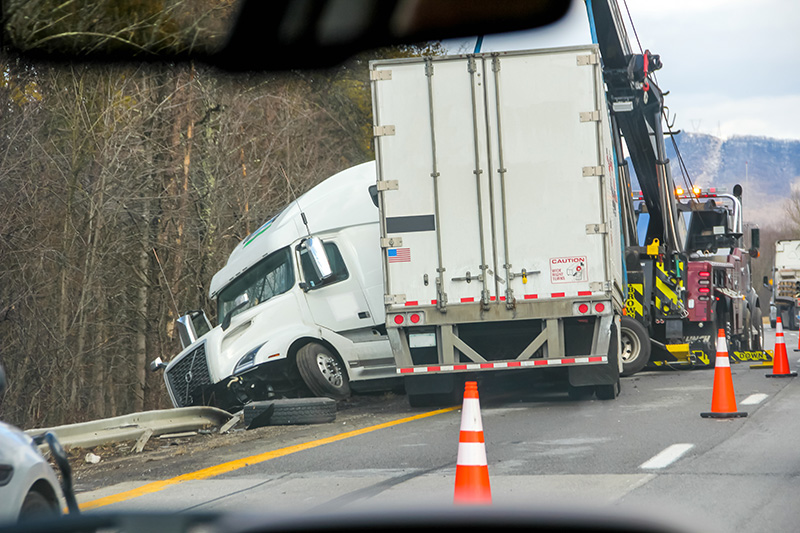
Personal injury laws in Georgia are more than just legal rules—they represent a promise that individuals who suffer harm because of someone else’s actions or negligence have a path to seek justice. Georgia’s legal framework doesn’t just account for the physical pain and financial burdens an injury brings; it also recognizes the emotional toll that these incidents can have on individuals and their families.
When a person’s life is disrupted by an accident, the law steps in to address the balance, determining accountability and ensuring fair compensation. Georgia’s unique approach to fault, damages, and timelines reflects the state’s commitment to fairness while respecting the rights of both the injured and those who are accused of causing harm. Understanding how these laws work—and how they protect you—can make a significant difference when life takes an unexpected turn.
What Are Personal Injury Laws in Georgia?
Personal injury laws in Georgia are regulations that allow individuals to seek compensation for damages resulting from accidents or injuries caused by another party’s negligence or wrongful actions. These laws encompass a wide range of situations, including car accidents, slip and fall incidents, medical malpractice, and product liability cases. In Georgia, personal injury claims are primarily governed by tort law, which focuses on civil wrongs that cause harm to individuals.
Types of Personal Injury Cases in Georgia
- Car Accidents: One of the most common types of personal injury cases in Georgia involves automobile accidents. If a driver is negligent—such as by texting while driving or running a red light—they can be held liable for any injuries or damages that result from the accident.
- Slip and Fall Accidents: Property owners in Georgia have a legal obligation to maintain safe environments for visitors. If a person slips and falls due to hazardous conditions, such as wet floors or uneven surfaces, they may have grounds for a personal injury claim.
- Medical Malpractice: Medical professionals are required to provide a standard level of care to their patients. If a healthcare provider fails to meet this standard, resulting in injury or harm, the affected patient may file a medical malpractice claim.
- Product Liability: Manufacturers and sellers of products are responsible for ensuring their products are safe for consumers. If a defective product causes injury, the injured party may pursue a product liability claim against the responsible parties.
- Wrongful Death: In cases where an individual dies due to the negligence or wrongful actions of another, surviving family members may file a wrongful death claim to seek compensation for their loss.
Key Elements of a Personal Injury Claim
To successfully file a personal injury claim in Georgia, the plaintiff must establish several key elements:
- Duty of Care: The defendant must have owed a duty of care to the plaintiff. For example, drivers have a duty to operate their vehicles safely, while property owners have a duty to maintain safe conditions for visitors.
- Breach of Duty: The plaintiff must demonstrate that the defendant breached this duty of care. This could involve actions such as speeding, failing to repair a hazardous condition, or providing inadequate medical care.
- Causation: The plaintiff must show that the defendant’s breach of duty directly caused their injuries. This means establishing a clear link between the defendant’s actions and the harm suffered.
- Damages: Finally, the plaintiff must prove that they suffered actual damages as a result of the injury. This can include medical expenses, lost wages, pain and suffering, and other related costs.
Statute of Limitations in Georgia
In Georgia, personal injury claims are subject to a statute of limitations, which is the time limit within which a lawsuit must be filed. Generally, the statute of limitations for personal injury cases is two years from the date of the injury. It is crucial for individuals to be aware of this time frame, as failing to file a claim within the allotted time may result in losing the right to seek compensation.
Comparative Negligence in Georgia
Georgia follows a “modified comparative negligence rule”, which affects how damages are awarded in personal injury cases. Under this rule, if the plaintiff is found to be partially at fault for the accident, their compensation may be reduced by their percentage of fault. However, if the plaintiff is found to be more than 50% at fault, they are barred from recovering any damages.
For example, if a plaintiff is awarded $100,000 in damages but is found to be 30% at fault for the accident, their compensation would be reduced to $70,000. Conversely, if they are found to be 51% at fault, they would receive nothing.
The Process of Filing a Personal Injury Claim
Filing a personal injury claim in Georgia involves several steps:
- Consultation with an Attorney: It is advisable to consult with a personal injury attorney who is knowledgeable about Georgia’s laws. They can help evaluate your case, provide guidance on the legal process, and represent you in negotiations or court.
- Investigation: Your attorney will conduct a thorough investigation of the incident, gathering evidence such as medical records, accident reports, witness statements, and photographs of the scene.
- Demand Letter: Once the investigation is complete, your attorney may send a demand letter to the responsible party’s insurance company, outlining the details of the case and the compensation sought.
- Negotiation: Insurance companies often engage in negotiations, and your attorney will advocate on your behalf to reach a fair settlement. If a settlement cannot be reached, your attorney may advise you to proceed with filing a lawsuit.
- Filing a Lawsuit: If negotiations fail, your attorney will file a formal lawsuit in the appropriate Georgia court. This initiates the legal process and sets a timeline for the case.
- Discovery Phase: During this phase, both parties exchange information and evidence related to the case. This may involve depositions, interrogatories, and requests for documents.
- Trial: If the case does not settle during the discovery phase, it may proceed to trial. A judge or jury will hear the evidence and make a determination regarding liability and damages.
- Settlement or Verdict: After the trial, the court will issue a verdict. If the plaintiff prevails, they may be awarded damages. Alternatively, the parties may reach a settlement at any point during the process.
Potential Outcomes of a Personal Injury Case
The outcome of a personal injury case can vary widely based on several factors, including the strength of the evidence, the extent of the injuries, and the willingness of the parties to negotiate. Potential outcomes include:
- Settlement: Many personal injury cases are resolved through settlements before reaching trial. Settlements can provide quicker compensation and avoid the uncertainties of a trial.
- Trial Verdict: If the case goes to trial, the jury or judge will render a verdict. If the plaintiff wins, they may be awarded compensatory damages for medical expenses, lost wages, pain and suffering, and other losses.
- Dismissal: In some cases, a court may dismiss a personal injury claim if the evidence is insufficient or if the plaintiff fails to meet the legal requirements.
- Appeal: If one party is dissatisfied with the trial verdict, they may have the option to appeal the decision to a higher court.
Have you been injured by a negligent party in Georgia? Our experienced Atlanta personal injury attorney is here to help. Request a free consultation with our attorneys for free case evaluation today.
Important Personal Injury Laws in Georgia Everyone Should Know
Here are some important Georgia personal injury laws everyone should know about to protect their right to justice and compensation in an event of injury by another party:
General Negligence and Duty of Care
- Ordinary Negligence (O.C.G.A. § 51-1-2)
“Ordinary diligence is that degree of care which is exercised by ordinarily prudent persons under the same or similar circumstances. The absence of such diligence is termed ordinary negligence.” - Gross Negligence (O.C.G.A. § 51-1-4)
“In general, slight diligence is that degree of care which every man of common sense, however inattentive he may be, exercises under the same or similar circumstances. The absence of such care is termed gross negligence.”
Assault, Battery, and Intentional Torts
- Assault (O.C.G.A. § 51-1-13)
“A physical injury done to another shall give a right of action to the party injured, irrespective of any criminal proceedings which may or may not be instituted for the prosecution of the offender.” - Battery (O.C.G.A. § 51-1-14)
“Any violent injury or illegal attempt to commit a physical injury upon a person is a tort for which damages may be recovered.”
Premises Liability
- Duties of Owners/Occupiers (O.C.G.A. § 51-3-1)
“Where an owner or occupier of land, by express or implied invitation, induces or leads others to come upon his premises for any lawful purpose, he is liable in damages to such persons for injuries caused by his failure to exercise ordinary care in keeping the premises and approaches safe.” - Licensee Liability (O.C.G.A. § 51-3-2)
“The owner of premises is liable to a licensee only for willful or wanton injury.” - Trespasser Liability (O.C.G.A. § 51-3-3)
“An owner of land owes no duty to a trespasser except to refrain from causing a willful or wanton injury.”
Vehicle Accidents
- Reckless Driving (O.C.G.A. § 40-6-390)
“Any person who drives any vehicle in reckless disregard for the safety of persons or property commits the offense of reckless driving.” - Hit-and-Run (O.C.G.A. § 40-6-270)
“The driver of any vehicle involved in an accident resulting in injury to or the death of any person or in damage to a vehicle which is driven or attended by any person shall immediately stop at the scene of the accident or as close thereto as possible.”
Wrongful Death
- Wrongful Death Claims (O.C.G.A. § 51-4-1)
“As used in this chapter, the term ‘homicide’ includes all cases in which the death of a human being results from a crime, from criminal or other negligence, or from property which has been defectively manufactured.”
- Survivor’s Right to Recover (O.C.G.A. § 51-4-2)
“The surviving spouse or, if there is no surviving spouse, a child or children…may recover for the homicide of the decedent the full value of the life of the decedent, as shown by the evidence.”
Medical Malpractice
- Medical Standard of Care (O.C.G.A. § 51-1-27)
“A person professing to practice surgery or the administering of medicine for compensation must bring to the exercise of his profession a reasonable degree of care and skill. Any injury resulting from a want of such care and skill shall be a tort for which a recovery may be had.”
- Affidavit of Expert Requirement (O.C.G.A. § 9-11-9.1)
“In any action for damages alleging professional malpractice…the plaintiff shall be required to file with the complaint an affidavit of an expert competent to testify.”
Product Liability
- Manufacturer Liability (O.C.G.A. § 51-1-11)
“The manufacturer of any personal property sold as new property directly or through a dealer or any other person shall be liable in tort to any natural person who may use, consume, or reasonably be affected by the property and who suffers injury.”
Dog Bite Liability
- Dangerous Animals (O.C.G.A. § 51-2-7)
“A person who owns or keeps a vicious or dangerous animal of any kind and who, by careless management or by allowing the animal to go at liberty, causes injury to another person who does not provoke the injury by his own act may be liable in damages.”
Emotional Distress
- Intentional Infliction of Emotional Distress (O.C.G.A. § 51-12-6)
“In a tort action in which the entire injury is to the peace, happiness, or feelings of the plaintiff, damages therefore may be recovered.”
Defamation and Privacy
- Libel and Slander (O.C.G.A. § 51-5-1)
“A libel is a false and malicious defamation of another, expressed in print, writing, pictures, or signs, tending to injure the reputation of the person and exposing him to public hatred, contempt, or ridicule.”
- Invasion of Privacy (O.C.G.A. § 51-1-6)
“An invasion of privacy gives a right of action to the injured party.”
Loss of Consortium
- Loss of Consortium (O.C.G.A. § 51-12-3)
“Damages for the loss of consortium, society, companionship, or affections of a spouse or child shall be recovered as independent and distinct claims.”
Statute of Limitations
- Personal Injury Statute of Limitations (O.C.G.A. § 9-3-33)
“Actions for injuries to the person shall be brought within two years after the right of action accrues, except for injuries involving loss of consortium, which shall be brought within four years.”
Other Important Georgia Personal Injury Laws
Employer and Employee Liability
- 2Employer Liability for Employee Actions (O.C.G.A. § 51-2-2)
“Every person shall be liable for torts committed by his servant by his command or in the prosecution and within the scope of his business, whether the same are committed by negligence or voluntary.” - Negligent Hiring and Retention (O.C.G.A. § 34-7-20)
“An employer is bound to exercise ordinary care in the selection of employees and not to retain them after knowledge of incompetency.”
Joint and Several Liability
- Liability of Joint Tortfeasors (O.C.G.A. § 51-12-30)
“Where an injury occurs from the joint wrongful act or omission of two or more persons, the injured party may bring an action against any one or more of the persons acting jointly or may sue all of them jointly.” - Contribution Among Tortfeasors (O.C.G.A. § 51-12-32)
“Contribution among several trespassers or wrongdoers may be enforced as to matters of mere negligence.”
Comparative Negligence
- Modified Comparative Negligence Rule (O.C.G.A. § 51-12-33)
“Where an injured party is partially at fault for their injuries, damages shall be reduced in proportion to the injured party’s percentage of fault, provided the injured party’s fault is less than 50%.”
Parental Responsibility
- Parental Liability for a Child’s Actions (O.C.G.A. § 51-2-3)
“The parent or guardian of an unemancipated minor shall be liable for any torts committed by the minor upon any person if the parent failed to exercise reasonable care in supervising the child.”
Workers’ Compensation and Employer Immunity
- Workers’ Compensation Exclusivity (O.C.G.A. § 34-9-11)
“The rights and remedies granted to an employee by this chapter shall exclude all other rights and remedies of such employee, his personal representative, parents, dependents, or next of kin at common law or otherwise on account of such injury, loss of service, or death.” - Intentional Harm Exception to Employer Immunity (O.C.G.A. § 34-9-11(a))
“An employer is not immune from liability for damages resulting from an intentional act meant to injure an employee.”
Punitive Damages
- Punitive Damages Cap (O.C.G.A. § 51-12-5.1)
“Punitive damages shall not exceed $250,000 in civil tort actions unless the case involves product liability or a specific intent to cause harm.”
Proximate Cause
- Definition of Proximate Cause (O.C.G.A. § 51-12-9)
“Damages may be recovered for injuries which are the direct and proximate result of a wrongful act or omission.”
Our experienced attorneys are here to help. If you or a loved one is suffering from any injury including wrongful death, get in touch with our compassionate injury lawyers in Atlanta today for a free case evaluation.
Conclusion
Understanding personal injury laws in Georgia is crucial for anyone who has been injured due to the negligence of another party. Familiarity with the legal process, the elements of a claim, and the potential outcomes can empower individuals to seek the compensation they deserve. If you find yourself in such a situation, consulting with a qualified personal injury attorney can provide valuable guidance and support throughout the process. Remember, the sooner you take action, the better your chances of a successful outcome.



